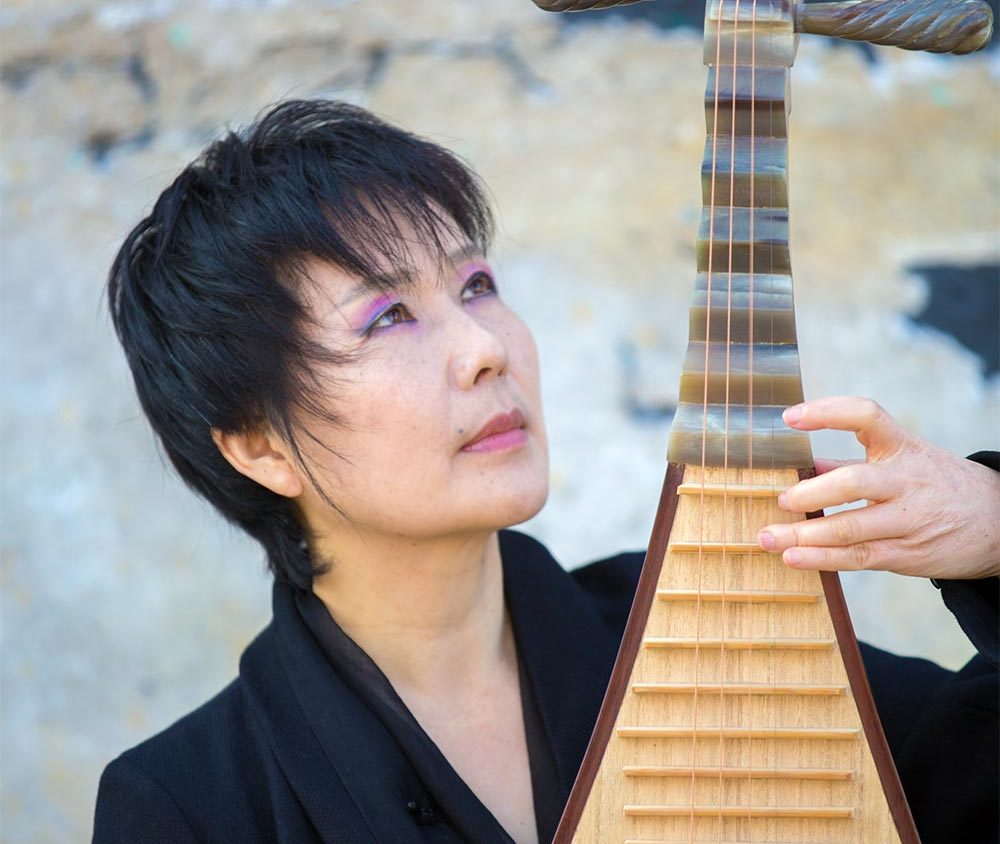“The times change, and we change with them. How? Time passing makes mankind worse.”
That 17th-century epigram may sound depressingly apt to observers of our recently changing political scene, but in the arts, change is necessary for continued vitality and relevance. Which is why it’s so exciting to see Eugene’s most exciting orchestral program of the season in the Saturday, Oct. 6, Oregon Mozart Players concert at the University of Oregon’s Beall Concert Hall, titled “Times Change.”
OMP has been one of Eugene’s most valuable classical music institutions since its founding, but its programs have often tended to stick close to the period of its namesake and maybe the following century.
The season-opening Oct. 6 program, though, features an ideal blend of classic (Haydn’s tempestuous 64th symphony, subtitled after that epigram above), and a trio of vibrant, listener-friendly 21st-century compositions.
Kevin Lau’s pounding, bounding Artemis is a musical portrait of the Greek goddess of the hunt. Zhou Tian’s upbeat Viaje features the brief return from her new Nashville home of longtime UO faculty member Molly Barth, one of the world’s finest flutists. Daniel Schnyder’s jazzy, dramatic Concerto for Pipa, spotlights another stellar soloist, Min Xiao-Fen, a virtuosa who is the Jimi Hendrix of the banjo-like pipa, an instrument also called the Chinese lute.
Along with being the coolest classical concert program of the year, this show kicks off OMP’s freshest season in memory, with the chamber orchestra playing 16 of the season’s 22 selections for the first time — six written in the past three decades.
The two pipa works represent a prominent theme of our changing times: cultural collision. Schnyder’s concerto expertly mixes a quintessentially Asian instrument (and Min’s breezy voice) with a Western orchestra, and the Spanish-language title of Zhou Tian’s Voyage, inspired by El Cid and Spanish history and music, reflects the Chinese-American composer’s travels in Spain. Can’t get much more multiculti than that!
While our century’s cross-cultural interactions terrify small-minded, insular souls into supporting racists and nationalists, they inspire artists to broaden their horizons and open creative new worlds to audiences.
The next afternoon, Min returns to Beall for a solo performance in the UO’s fascinating World Music Series. One of the most charismatic musicians I’ve ever seen (in an explosive, furious 2013 Third Angle performance at Portland’s Lan Su Chinese Garden), she grew up in a musical Nanjing family, hearing, playing and singing both Chinese and Western classical music.
She joined a traditional music orchestra, and fronted a pop band (sax, electric guitar, drums) in Chinese clubs. Shortly after moving to New York in 1996 — one of those dangerous immigrants! — she was improvising and recording with avant-jazzers John Zorn, the late Randy Weston and Derek Bailey. In solo performances, with her Blue Pipa trio, and with orchestras around the country, she’s gone on to play music by American jazz legends and by Chinese American composers such as Pulitzer Prize-winner Zhou Long and Tan Dun, even Appalachian standards and Gershwin.
“A demonic virtuoso who has mastered a variety of plucked instruments; who improvises; who sings; who cultivates an ‘unrestrained style of playing,’ when she speaks the language of Thelonious Monk, Duke Ellington or Miles Davis, the results are not ersatz but transformational,” wrote the distinguished classical music maven Joseph Horowitz in the New York Times. “If jazz is America’s most influential ‘classical music,’ the Monk-Min idiom is a postclassical signpost to the future.”
Another jazz-influenced composer from nearby, Portland’s David Schiff provides the opening music to Eugene Symphony’s Oct. 18 concert at the Hult Center. Introduced to jazz in New York clubs at age 11 and through his years at Columbia University, Schiff has become one of America’s most distinguished composers, the foremost scholarly expert on modernist American composer Elliott Carter, a staple of Chamber Music Northwest concerts and an esteemed longtime professor now completing his final year before retiring from the Reed College faculty.
The concert also features Beethoven’s underrated eighth symphony and Leonard Bernstein’s second symphony, a piano concerto-in-disguise (starring pianist Ran Dank) titled “The Age of Anxiety” and inspired by the W.H. Auden poem of the same name.
Finally, for a historical look at American folk music, check out Chico Schwall’s latest American roots concert at The Shedd Oct. 17, which follows the hallowed path of the great musicologist Cecil Sharp and other “song-catchers” who traveled through Appalachia and other rural areas, collecting songs by Lead Belly, Blind Willie McTell, Woody Guthrie and earlier folk musicians. That music, too, evolved through the centuries as it moved through the land. Tempus fugit: the times they are always a-changing, and music changes with it.
